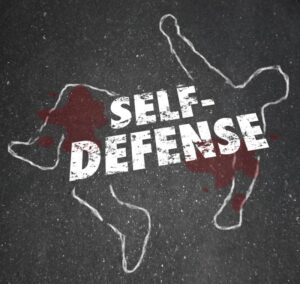The “Long” Wait for Response and Avoiding Becoming an Aggressor: Will You Remain Silent and Lawyer Up?
Any incident where a firearm is pointed in self-defense to the exercise of deadly force is a dynamic event. Any civilian in this position is well advised to provide a request for assistance and identify themselves, but not to make statements without a lawyer. Such a traumatic event releases a chemical reaction in the brain that makes you unable to accurately recount facts at the time.
Deadly force cases become very difficult for even the most skilled defense counsel when an intruder is on a person’s property, the property owner is disengaged, contacts the police and then re-engages the trespasser or person invading one’s home or property. The Castle Doctrine and right to the affirmative defense of self-defense may be extinguished by disengaging, going into your home or car, and then re-engaging when waiting on the police.
In case after case, the person who had a valid defense to point a firearm to the exercise of deadly force becomes the aggressor by re-engaging the trespasser. The right to the affirmative defense of self-defense is objective—meaning it must be reasonable. Thus, without making a statement to police you will be welded to, remaining silent may allow you with skilled defense counsel to demonstrate the event was one event of an attack on your property, not two, whereby you were the aggressor in the second circumstance and now the defendant.
The human desire to explain is innate. However, most prosecutors, police, judges, and lawyers would exercise their right to remain silent and not make a statement that could be used against him or her and extinguish an affirmative defense if they were in the situation. Know the Castle Doctrine, standing one’s ground, and the affirmative defense to point a firearm to discharge and shooting a person have ways they may be extinguished and make you the defendant.
Defending your curtilage or yard is not a clear application of the Castle Doctrine where a firearm is used in most cases. Take due care.
Dixon & Moseley, P.C. practices criminal defense throughout the state. This blog post is written for general informational and educational purposes law on a very complex area of criminal law. It is not intended as legal advice or a solicitation for services. It is an advertisement.






